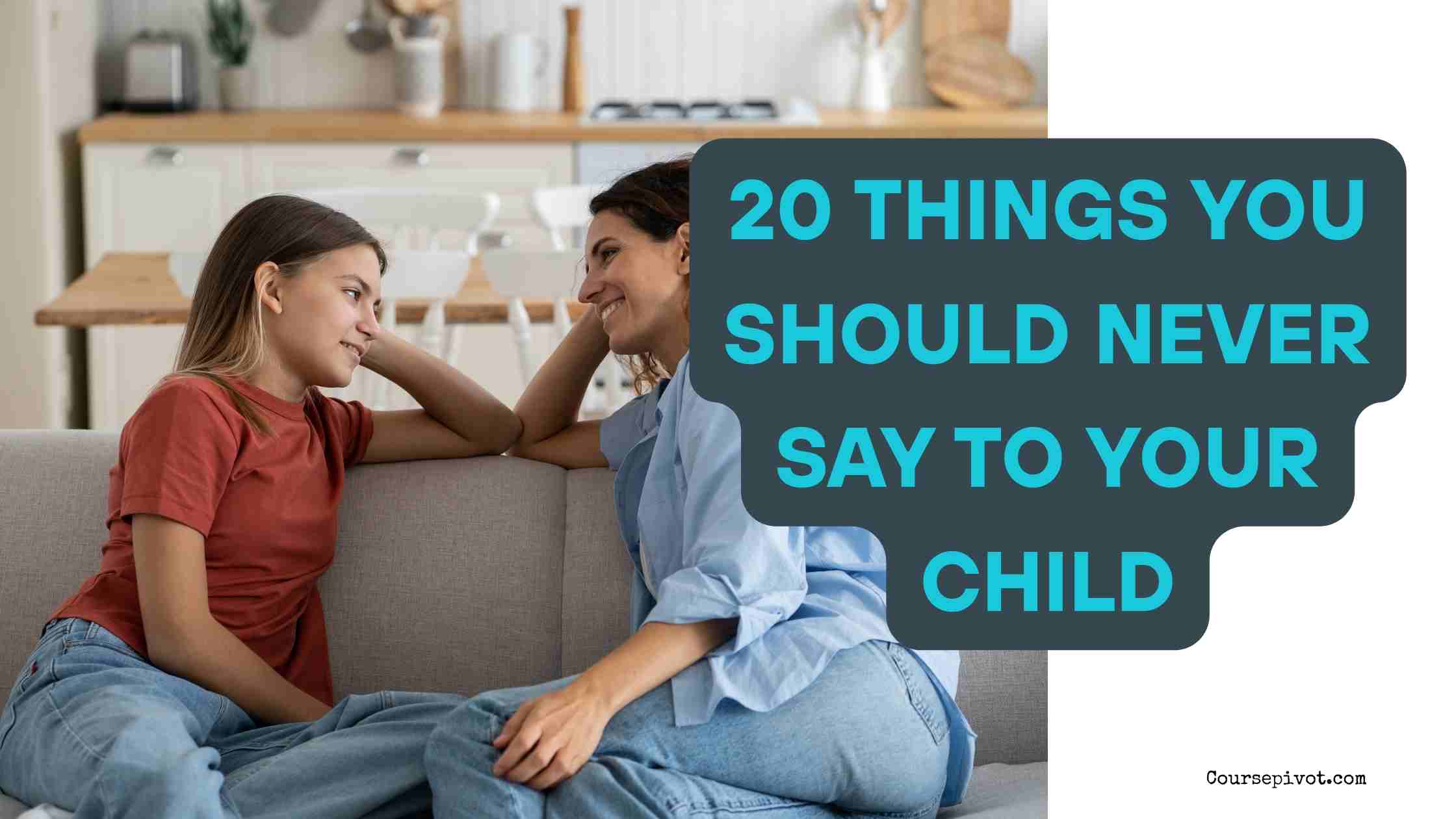
20 Things You Should Never Say to Your Child
Children absorb language like sponges. What you say to them—especially in moments of anger, stress, or disappointment—shapes their self-esteem, beliefs, and emotional health. Even words you don’t remember saying can echo in their minds for years.
We all make mistakes. No parent is perfect. But there are some phrases that cause more damage than we realize. Whether said in the heat of the moment or passed off as a joke, these comments can leave long-lasting scars on a child’s confidence, trust, and sense of belonging.
Read our top blogs on: 8 Things You Should Never Say to Your Partner
Here are 20 things you should never say to your child—no matter how frustrated or overwhelmed you feel in the moment.
🔢 20 Things You Should Never Say to Your Child
1️⃣ “I wish you were never born.”
2️⃣ “Why can’t you be more like your brother/sister?”
3️⃣ “You’re such a burden.”
4️⃣ “You’ll never be good enough.”
5️⃣ “Stop crying or I’ll give you something to cry about.”
6️⃣ “I’m ashamed of you.”
7️⃣ “You always mess things up.”
8️⃣ “You’re so stupid.”
9️⃣ “You’re driving me crazy.”
🔟 “I don’t love you right now.”
1️⃣1️⃣ “You’re too sensitive.”
1️⃣2️⃣ “You’re fat/ugly/weird.”
1️⃣3️⃣ “I should have never had kids.”
1️⃣4️⃣ “You’re a bad kid.”
1️⃣5️⃣ “Why can’t you be normal?”
1️⃣6️⃣ “You ruin everything.”
1️⃣7️⃣ “You’re just like your [negative person reference].”
1️⃣8️⃣ “I don’t care what you think.”
1️⃣9️⃣ “Go away, I don’t want to see you right now.”
2️⃣0️⃣ “I’ll stop loving you if you keep acting like this.”
Words are powerful—especially when they come from a parent.
Children don’t just listen to what you say—they believe it. Your words form the foundation of how they see themselves, how they feel about the world, and how they handle relationships, conflict, and emotion. When you say something painful or dismissive, even if unintentionally, it can land like a punch to their self-esteem.
Phrases like “You’re stupid” or “I don’t love you right now” don’t just hurt in the moment—they can leave emotional bruises that last into adulthood. They can replay in your child’s mind when they try something new, when they fail, when they compare themselves to others, or when they question whether they are lovable or good enough.
It’s important to remember that children are still learning how to interpret the world. They don’t have the emotional tools adults have (and even adults struggle sometimes). So when harsh words are thrown at them, they often internalize them rather than question them. Instead of thinking, “Mom/Dad was just stressed,” they often think, “Something must be wrong with me.”
But here’s the hopeful part: just as harmful words can wound, healing words can repair.
If you’ve said something you regret, that doesn’t mean you’re a bad parent. What matters is what you do next. Apologize. Talk it through. Let your child see that adults make mistakes, and more importantly, they take responsibility for them. That’s one of the most powerful examples you can set.
Parenting isn’t about being perfect. It’s about being present. Being aware. Being kind even when it’s hard. Your words don’t have to be poetic or profound. They just need to feel safe.
Tell them you love them. Encourage them when they fail. Remind them that you’re proud of them—not just for what they do, but for who they are.
In the end, children may forget a lot of what you say, but they’ll never forget how your words made them feel. So make sure what they carry with them is strength, not shame.
Confidence, not confusion.
Love—not lingering doubt.
Because your words don’t just fill silence.
They build the voice they’ll one day use to speak to themselves.
Cite this article
You can copy and paste your preferred citation format below.
Martin, L. & Arquette, E.. (2025, May 16). 20 Things You Should Never Say to Your Child. Coursepivot.com. https://coursepivot.com/blog/20-things-you-should-never-say-to-your-child/



